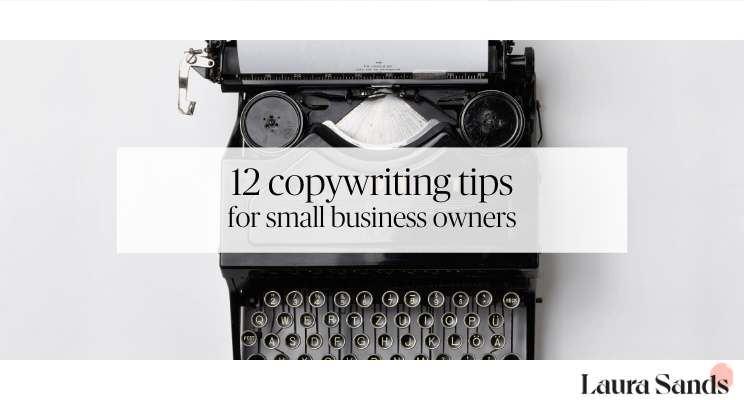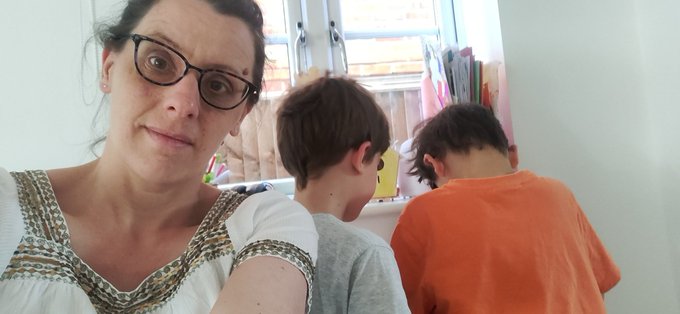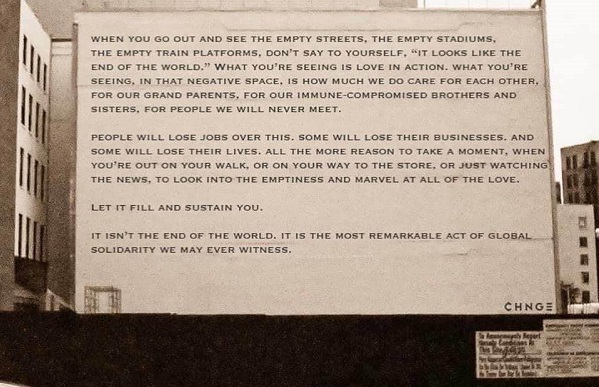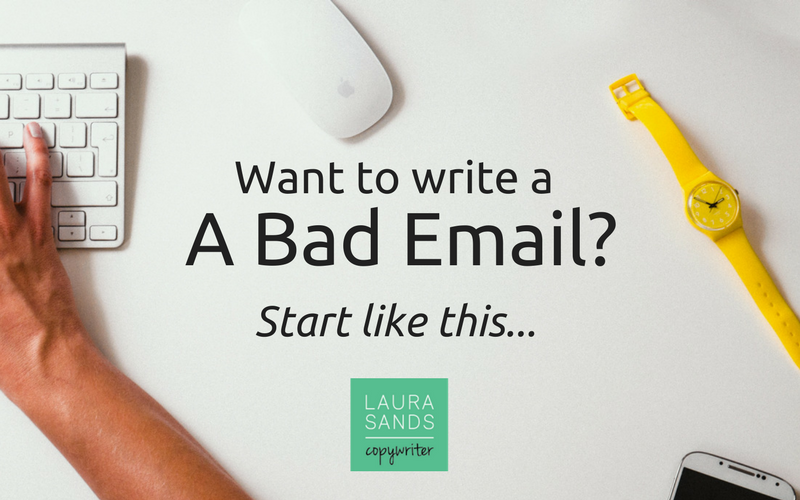
As a small business owner, you need to master a range of skills. As well as finance manager, CEO and pot washer, you need to be a copywriter. And the truth is that although copywriting seems simple at first, it can quickly become overwhelming. My copywriting tips for small business owners are just what you need!
Copywriting tips for small business owners.
Are you ready? Coffee in hand? Let’s go…
- Writing doesn’t need to be a drama. You’re just communicating with your audience. If you feel anxious as you approach your keyboard, then try some mind tricks to help you relax into it. One such trick is to pretend you’re talking to just one person – you’ll feel yourself slipping into a much more comfortable frame of mind, ready to write!
- Worries about your grammar? Install Grammarly – it’s what all the copywriters are using. It handily checks your grammar & gives you a little nudge if things look incorrect. Beware, the free version has a fondness for Oxford commas & American spellings, so use it with good judgement and align it with your preferences.
- Forget yourself. You’re not writing for yourself. You’re writing for your audience. So make sure your writing talks to them about what they’ll get. Not what you can deliver.
- Bad writing is better than no writing. After all, you can’t edit a blank page. So, no matter how uninspired you feel or how bad your cold, get something down on the page. Chances are it won’t look that bad when you review it. Speaking of which…
- Sleep on it. Leave everything you’ve written for a good few hours before you send/upload/share it. Overnight (or even longer if you have the time) is best. You’ll be amazed at how much you want to change on your final reading.
- If it’s not your idea, say so. After all, you’ll just get into hot water if you try to pass off an idea or passage as your own. And in any case, it’s an opportunity to link to or mention your contributor, by which you broaden your audience. Either link to your source in your writing, or mention your source by name. (A link to their website or social media profile is a nice touch here too.)
- Share! What’s the point of writing fine words if they just sit on your laptop or blog without seeing the light of day? Share, share and share again. And then repurpose it so you can share it even more. The world deserves to see your brilliance, wouldn’t you say?
- SEO is dead. Or so they keep saying. If you want your online writing to index well with search engines, you need to write naturally. Keep it relevant to your audience and use a broad range of vocabulary that refers to your “keywords” – not that anyone admits to using these anymore.
- Don’t rely on the robots. AI can be helpful, but please don’t rely on it to write your content. You’ll only end up with something mindnumbingly generic. That’s because AI sources its information from what’s already out there. If you write your content with AI, you’ll have something that’s essentially an internet word salad. Wondering what to do instead? Here’s a great place to start…
- Leave out unnecessary words. The more words you include, the more your audience needs to process, and the more likely they are to stop reading. Remove words such as “to”, “of”, “then” and “that”. This goes a long way to making your copy that little bit easier to read.
- Don’t fret about the beginning. It can be easier to get stuck into the meat of what you’re trying to say and then build your writing up around it. Don’t worry about finding the perfect opening paragraph – just leave it, write the rest of your document and then come back to it later on.
- Get help. No one is an island. If you’re really struggling, get a copywriter (shameless plug, my apologies!). Otherwise, ask willing (and capable) friends and family to proofread your work and give you feedback. A brainstorming session with your network can go a long way to giving you new ideas for your next few blog posts or emails.
Looking for more copywriting help?
As a copywriter who regularly writes for small and medium sized businesses, I can help you in a number of ways.
- I can write for you. Give me a call, tell me what you need and I’ll get writing!
- You can book a 121 inspiration call. You can use these calls in any way you like – from brainstorming ideas to coaching you to write perfect blogs.
- You could join one of my copywriting workshops. I run a range of free and paid workshops, they all contain copywriting tips for small business owners!
- You could sign up for my email. You’ll get a monthly update with advice and news to help you improve your writing. You’ll also get a free blogging basics guide to help you get started!
It’s nice to give praise. To tell people they did a great job or that you really enjoyed the coffee/meal/cake they made you. Positive feedback helps reinforce desired behaviours and sends a message of appreciation. Something that’s much needed in the workplace and home. But have you stopped to consider how you give praise?
“You did a great job Sally, well done”
“That presentation was awesome. Great job!”
“Amazing cake, thank you!”
Do you spot a theme?
Yes, the words are positive. But then if they weren’t, it wouldn’t be praise.
The other thing you may have noticed is that the words are all fairly general. They’re not specific and are easily swapped around with one another. “Awesome” could apply to the cake, presentation or job that Sally did.
So what?
The problem with using generalist vocabulary is that it lacks true impact and doesn’t really say what you were impressed with. The effect lessens with each usage. The problem with telling everyone that they do a great, awesome or amazing job, is that over time, the effect of that compliment diminishes.
How to give more constructive praise
It all comes down to the words you use. Be more thoughtful in your choice of vocabulary. Perhaps Sally did a “meticulous” job, or maybe she was “right on brief“. Both of these give Sally an idea of what you’re so happy about, helping guide her with future projects. She’ll be just as, if not more pleased than if you’d said “great“.
And that “awesome” presentation may well have been “inspiring“, “thought-provoking“, “highly competent” or even “well-judged and very funny“. So much more helpful than an over-used statement of “awesome“.
And of course, you’d be absolutely right to describe a delicious cake as “amazing”, but how about getting a bit more creative with your compliments – “so rich and chocolatey”, or “light and delicious”, or even “just the sugar hit I needed right then”. You’ll be so much more likely to be offered an extra slice…
Let’s face it, no-one’s going to get grumpy with you if you happen to tell them they did something awesome. I certainly wouldn’t. But to give them a thoughtful compliment or well-considered piece of praise could well make their day.
And wouldn’t that be awesome?
Looking for better ways to express yourself? Sign up to my not-very-regular email updates and you’ll get more ideas and suggestions. (You’ll also get a FREE downloadable checklist to help you write better blogs – feel free to pass it on if you won’t use it!)
That most precious of things. Space.Today, for the first time in months I am on my own.
I realise that others, on their own for months, might see this as no cause for celebration. The space and isolation can feel as oppressive as constant contact and noise.
Our need and preferences for space vary so much. Too much and we feel lost, alone. Too little and we feel cramped and irritable. And the ‘right’ amount can differ depending on our mood at the time.
I started this blog intending to write about the value of spacing out copy for better readability. I know, you can barely withhold your excitement right? I’ll get to it. But first please bear with me as I amble into a more philosophical terrain for a few paragraphs.
Space matters for all sorts of reasons

Why use another room when you can stand in almost exactly the same place as your parents?
This is me. Lockdown chic at its best. I was trying to work at the time, and for a reason known only to themselves, my kids decided they would use the tablet in the same square metre as me. I know other parents (of kids and pets) can relate. Indeed, another friend sent me a very similar picture of her two kids pretty much sitting on top of her as she tried to relax for a few minutes.
Children love this lack of space and close contact. Indeed, it’s known that mammals need to be cuddled. It builds up our bodily systems, reduces stress and helps us sleep. I remember crowding my parents as a child – a mark of dependency we become keen to lose as we enter those teenage years. I try to remind myself that one day these moments of full-on physical affection will stop and to enjoy them – as much as that’s possible – while they’re still a feature.
This lack of space and the constant noise has felt wearing. But as I pad around my newly empty home, I feel alone. As if someone turned the volume down unexpectedly. It’s not the release I hoped it would be.
Space can absolutely feel like a bad thing. A new space at the table. An empty bedroom. An unslept-in side of the bed. It can be easy to forget – for a moment or two – that you’ve lost someone. Then the extra space reminds you. Perhaps for a fleeting instant, you hear or catch a glimpse of that precious person. But no… there’s nothing but space.
Space to think
We’ve been encouraged to think of the sudden presence of space in our towns and cities as a good thing. As a sign of our respect for one another and our love for one another. By staying home and staying safe we were helping one another and helping the country.

Quite what this means for the ones To Whom The Rules Do Not Apply as they drove to ageing parents and family members many miles away we can only speculate. Their insistence that rule-breaking was acceptable because it was done with integrity has been questioned enough.
Space can feel ridiculous. We step into the road to avoid walking to close to others. It feels like contemporary dance. As if we’re choreographing our public lives. “Yes of course I’ll stand against these nettles so you can walk past”. We Brits have embraced this distancing with surprising ease.
But now we also pull our children back as they cheerfully run near to others. It gets me every time. What are we doing to our kids? Will this constant talk of “don’t get close” backfire? How will they build relationships as teens and adults if leaving a gap between one another becomes habit? Perhaps it will become the teenage rebellion of future years. Flouting social norms by grouping together, standing near others, sitting on the lap of someone you don’t know.
The final frontier? No thank you
And then there’s Elon. I feel as if I am one of the few people who couldn’t give a monkey about his mission into space. There seem to be so many more Earthly matters to contend with. And honestly, I couldn’t think of anything worse than going into space. For one, I can’t get past the irony of the situation. People are paying to be blasted off our beautiful planet into an environment that’s so vast it’s called “space”. All the while, they’re shut into a room no larger than my office (and believe me, that’s small) with several other people.
Crikey, I’ve gone on a bit, haven’t I? Onto more writerly matters.
Space matters when you’re writing.
Clumping everything up into one big paragraph turns what could be inspiring, motivating or amusing into a verbal scrummage.
How can you get your message across when the reader doesn’t know where the important points are?
Listening to comedians emphasises this brilliantly. A good comedian always pauses to let the audience get the joke. It’s their paragraph break. Their white space. Listen to the audience’s reaction. Initially, they titter politely. And then, when they fully comprehend the joke, they roar with laughter.
This is a great excuse to get Phoebe Waller-Bridge into my post. Her silence – the space – whilst talking about genitals (yes, that’s what I meant to write) is all the more hilarious because of her silence. She lets her audience fill in the gaps and appreciate what she just said. It’s at around 4.30 minutes into the reel if you’re interested. (And I know you are.)
Another reason that space matters when you’re writing.
I’ll fully confess to having lost some of my mojo recently. Can you relate? The uncertainty, stress and claustrophobia took their toll. Creativity isn’t something you can just drum up. You need to nurture it. And for me, that means time alone.
A walk, a soak in a bath or shower, even plodding through the washing up. They all work for me and give me time to reflect and get lost. To make those creative connections and answer the voices in my head. Having space to myself again gives me the opportunity to create better writing with less work.
It’s a more efficient and joyful way of working.
Six ways you can use space to improve your writing:
On a page/screen:
- Use paragraphs. Stick to one idea per paragraph to help your reader distinguish between your ideas and messages more easily.
- Make your paragraphs shorter. If your paragraph is more than 4 or 5 sentences long, there’s a chance you’re getting carried away. Stick to the point and move on.
- Increase the space between your lines. You can choose how much space you have between your lines and paragraphs. Increasing the amount of space can make your text easier to read and digest. Cramming it together so it fits into a pre-determined space is offputting for your reader.
As a person:
- Find your happy place. Able to write in a cramped, noisy location with lots of people around you? Good stuff. Most writers need SILENCE, and that tends to mean their own space. So whether that’s an office of your own, a table in a library or even a seat in a bench, find the space you need to write.
- Finding it difficult to get enough silence? Try binaural beats. They stimulate your brainwaves to help fuel creativity and concentration. Whether they do it for you or not is another matter, but I have found them helpful in the past.
- Give yourself permission to enjoy nothing. Great things happen when your brain doesn’t engage in the “stuff” that surrounds us. Opt-out of your podcast on your next walk. Drive with the radio off. Put your phone away next time you’re waiting for someone. Instead, let your brain find the space it needs to create connections and ideas.
Helpful? Or a waste of space? Let me know what you think and tell me how you use space in your everyday life.
Want to write a bad email? Start like this… It slips off your tongue easily and finds its way off your fingers and onto a keyboard even more easily. But kicking off with an apology is one of the fastest ways I know of starting an email on the wrong foot.
It slips off your tongue easily and finds its way off your fingers and onto a keyboard even more easily. But kicking off with an apology is one of the fastest ways I know of starting an email on the wrong foot.
Sorry. Forgive me. My apologies. Whoops-a-daisy. My bad.
You get the picture.
Why you shouldn’t start with sorry
The person reading your email will be ready to wonder what you’ve done. Should they feel aggrieved? Impatient? Irritated? You’re certainly suggesting they have a right to be. As we humans are highly suggestible there’s a chance that even if they weren’t aware of the wrong you’d committed, and couldn’t have given two hoots, they may be a bit less than impressed with you than they were 10 minutes previously.
An example…
Let’s say you’ve sent something a bit later than promised. Train delays, kids off school, cat to the vets with a mystery cough… life happens. You finally whizz off the email to your contact, starting with an almost out of breath “sorry this is so late…”.
What’s the first thing the recipient thinks? “urgh… late again”. They sigh as they sip their coffee and add a little black mark against your name in their imaginary list of “people I deal with”.
If you were just an hour or so late, you’d have been better not mentioning it at all. There’s a chance they hadn’t even realised your note was late. If you were over a clear deadline or a day or so late, you could replace an effusive apology with a more assured “thank you for your patience…” – a trick you might have seen elsewhere.
Thank you for your patience
It’s something doctors say, you’ve probably heard it before…
You’ve been waiting in a stuffy waiting room with only copies of the “People’s Friend” for entertainment. It’s been 45 minutes and you’re ready to create merry hell. The doctor eventually calls you in and says “thank you for your patience”. They may even explain why they’re so over their schedule. Because your doctor is lovely and you know they do a good job, you readily forgive. After all, you don’t mind being patient do you?
Instead of apologising for a small and understandable deficiency on their part, the doctor praises you for a positive behaviour. It’s a small thing, but it makes a big difference to the way you feel. “Thank you for your understanding” works just as well. You make people feel good about their behaviour, shifting the emphasis off yourself. But sometimes this isn’t appropriate; perhaps a big fat “sorry” is in order.
When the situation demands an apology.
You don’t need me to tell you this. In situations that require an apology, you should say sorry.
But you don’t need to start your email with an apology. Get into the solution, help resolve the situation. Something along the lines of “I see what has happened. I’ll get back to you with XYZ by lunchtime tomorrow”. Then add your apology.
In fairness, if you’ve made a mistake that demands an apology you probably need to get on the phone and talk it through. But because you’ll be following up that phone call with an email as well, you need to remember to think carefully about how and where you place that necessary apology.
Sorry? What was that?
Say sorry. Show sorry. But start an email with a “sorry”? There’s never any need to do that.
Do you agree? Or not? Let me know.
